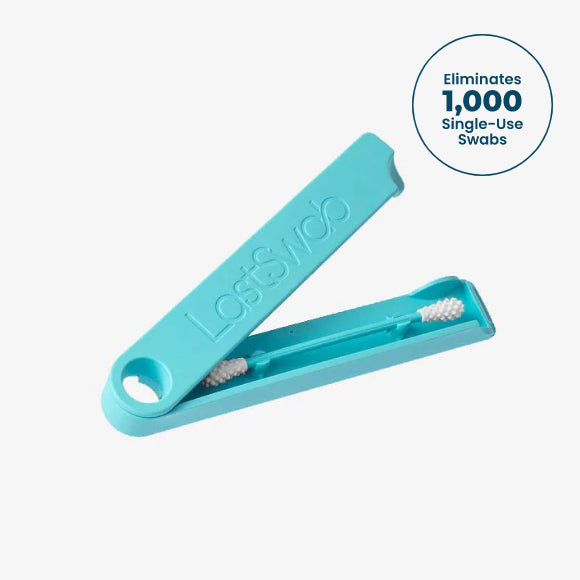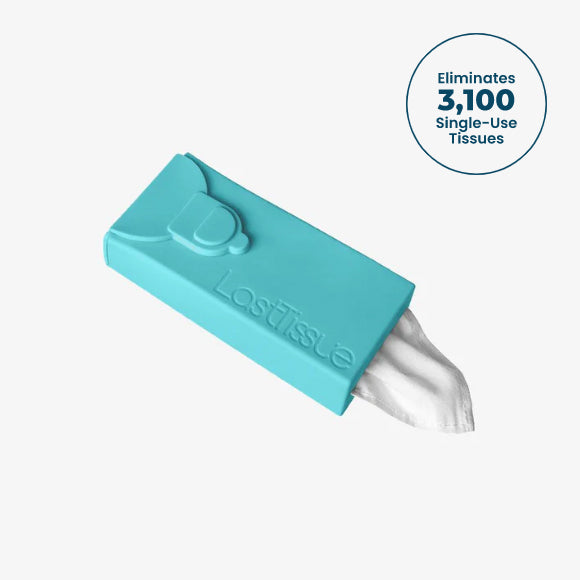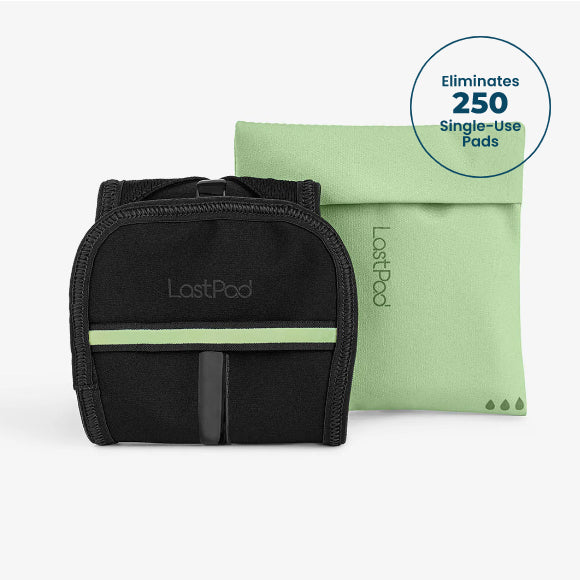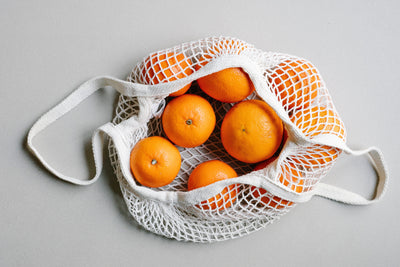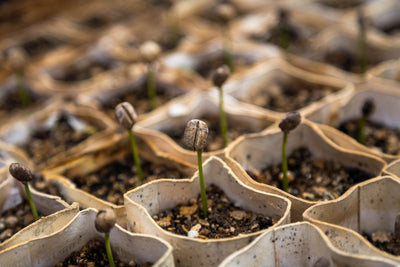How To Compost In An Apartment: A Guide
September 17, 2021The sustainable living lifestyle has become increasingly popular recently, as more people realize the importance of limiting their environmental impact. It has led to more people getting involved in composting. Even so, the misconception that composting requires a garden is surprisingly widespread. But there’s absolutely no reason why you can’t compost in an apartment.
No matter where you live, composting is possible. This practice is important because food waste directly increases global greenhouse gas emissions. In fact, if food-waste were a country, it would be the third largest greenhouse gas emitter in the world — only trailing behind the United States and China, according to the United Nations.
In just the U.S. alone, there is an estimated $161 billion worth of food wasted annually. Food waste is also deposited into US landfills more than any other single waste material. It accounts for around 24% of the total materials sent there. Similarly, households in the UK generate around 4.5 million tons of food waste each year.
As you can see, composting is an area where the world could do better. It’s also relatively simple to do — even without a garden! Considering how to get started or just interested to learn more on the subject? Read on to find out all you need to know about apartment composting.
What Are The Benefits Of Composting?
Composting reduces the volume of organic waste being sent to landfills. This is important because these materials produce methane in addition to other greenhouse gasses. The composting process does not involve methane-producing microbes, is ultimately much better for the environment.
Above and beyond the benefits of the process, the actual compost itself is extremely useful. It helps to nourish soil, meaning you don’t need fertilizer to feed your houseplants. You don’t even need to use it for your own plants — many people sell the compost they make at home. If you’re not interested in monetary gain, you can donate the compost to aid local ecological initiatives. It goes a long way towards helping reforestation and other restoration projects.
Before You Start Composting
Before you get started composting, try to reduce your waste output. It’s a vital part of any effort to live a more sustainable life. Start by evaluating your food waste in particular, then remember tips like the ones below to help you cut it down.
- Ensure you store your food properly. For example, bread is more likely to go moldy when left in dark, damp spaces. Similarly, many foodstuffs require adequate refrigeration. By ensuring you keep your food in the right conditions, it will last longer.
- When you have leftover food scraps after cooking, don’t throw them out! Oftentimes, you can still use them for another meal. For instance, vegetable scraps form the basis of vegetable stock. You can also make fruit vinegar out of your leftovers.
- Certain food types can be useful to your skincare routine. If you’ve got a lot of fruit peels, you can use them as a facemask. Have some cucumber leftover from making a salad? Use it to rejuvenate your eyes.
- Preserve your food. There are many ways of accomplishing this including canning, pickling, drying, curing, and freezing among others. All of these methods are quick and easy to perform.
- Some food is still useful even after its ‘use by’ date. For instance, you can still use bread that’s slightly gone off to make breadcrumbs for seasoning or croutons for your next soup serving.
Will Composting Cause An Unpleasant Smell In Your Apartment?
There is a persistent misconception that composting produces a nasty odor. It does seem reasonable to expect decomposing matter to smell bad. However, when done properly, composting will only produce a pleasant earthy smell.
The reason people think there will be a bad smell is due to the odor that comes from household bins. As we all know, garbage does smell awful. But this is because organic and non-organic matter are mixed together there. This inhibits organic matter, such as food waste, from properly decomposing. When composting, you will only be using organic matter, meaning it can break down naturally.
What Are The Fundamentals Of Composting?
The basics or composting are the same whether you’re doing it in a garden or an apartment. To operate properly, your composting bin requires the right balance of materials. This will be a mix of nitrogen-rich “green” and carbon-rich “brown” waste, and water:
- Browns are materials like dead leaves, branches, shredded paper, and twigs.
- Greens consist of vegetable and plant waste, and coffee grounds.
- The correct volume of water should be maintained.
- When adding materials to your pile, try to strike a carbon/ nitrogen (brown/ green) ration of around 30:1.
What Materials Should And Shouldn’t Be Composted?
It’s helpful to know which types of material you should compost and the ones you should discard as normal. Check out some examples below.
What To Compost
The following materials can all be composted:
- Fruits and vegetables (not citric fruit though, as it’s too acidic)
- Eggshells
- Coffee grounds and filters
- Tea bags
- Nut shells
- Shredded newspaper
- Cardboard
- Paper
- Houseplants
- Leaves
- Cotton and wool rags
- Hair and fur
- Ashes from smoking untreated tobacco
What Not To Compost
Do not compost the following materials:
- Black walnut tree leaves or twigs. These can discharge substances that might harm plants.
- Diseased or insect-infested plants. The diseases or insects might survive the composting process. They can then spread to other plants.
- Pet waste materials such as feces or soiled cat litter. They sometimes contain parasites, bacteria, germs, and viruses, which are harmful to humans.
Additionally, the following materials all cause unpleasant odors when decomposing and attract rodents:
- Fat, grease, lard, and oils
- Meat or fish (including bones)
- Dairy products (such as butter, milk, and cheese) and eggs.
Methods Of Composting In An Apartment
There are several ways to compost in your apartment. In this section, we’ll discuss the main features of each method to help you decide which one is best for you.
Worm Composters
Worm composters, also known as vermicomposters, are very popular amongst apartment dwellers. This is largely due to their size and efficiency. Their portable nature makes it easy to keep them even in the most cramped of apartments. They also rapidly turn household waste into nutrient-rich “black gold”.
If you do opt for a vermicomposter, you will need to source worms for it. You should be able to get these from nearby garden centers or online. Red Wigglers are the most efficient composting worm and are stocked by most suppliers.
Compost Tumblers
Compost tumblers are considerably larger than vermicomposters. As a result, they are a good option if you have a bit more space in your apartment. Compost tumblers are sealed units, and so do not have the same pest problems as some composters. This also keeps the heat in, meaning they produce compost at a faster rate than some other models.
Countertop Food Digesters
Countertop food digesters are a little more cutting-edge than other composters. These smaller electric-assisted models grind and heat your food waste into dry fertilizer. While they’re technically a fertilizer-maker, they are still an excellent way of converting your waste into useful matter that nourishes your flowerbeds. Their small size and impressive speed also make countertop food digesters ideal for use in an apartment.
Bokashi Composting
Bokashi composting is also quite different from most other methods. With this approach, you add all of your organic waste (including meat) into the base of your bin. Lactobacilli is then introduced to this matter — converting carbohydrates into lactic acid, which anaerobically ferments the waste. There are no greenhouse gasses created in this process. The resultant nutrient-rich material can then be used to feed your soil and plants.
How Often Should You Add Waste To The Bin
One of the limitations to composting in your apartment is the amount of space available. You will have to use a smaller bin, meaning you can’t add matter too often. As a general rule of thumb, add food waste to the bin every two to three weeks. And make it point to keep an eye on the decomposition process. When it looks like the pile is sufficiently degraded, add some more matter.
This is where reducing your total food waste, as previously specified, will pay dividends. If you still find yourself producing more waste, you can turn to composting instead of just leaving it out. The latter will lead to rotting, presenting a health risk and attracting pests.
What’s the Best Way To Gather The Finished Compost?
One of the most efficient ways of harvesting compost in your apartment is via an in/ out one-way system. This is how the system works:
- You only add scraps to one side of the bucket.
- After a while, all the worms will travel to this new matter to begin eating it.
- You can then gather the older processed matter from the other worm-free side.

Uses For Compost When You Don’t Have A Garden
You may be hesitant to start composting in your apartment precisely because you don’t have a garden. After all, what will you do with the compost once you’ve produced it? You may not be aware but compost is more of a commodity than most people think. Here are some of the ways you can put your compost to good use.
Dedicated Apps & Websites
Numerous websites and apps have been set up to facilitate compost sharing. Eco-friendly sites like ShareWaste help to connect people seeking and offering compost. They also contribute towards developing sustainability-conscious communities in different locations.
Grocery Stores
Shops are increasingly becoming motivated to contribute to the environmental movement. Many chains now provide composting collection services for their customers. Check with your local stores to see if they will take your compost.
Community and Co-op Gardens
Community and co-op gardens are another great destination for your compost. They are grass-roots initiatives for growing, producing, and creating shared green spaces. Such initiatives benefit entire communities and are worthy recipients of your compost.
Local Farmers Markets
Farmers markets are a good place to buy or sell compost. Have a look in your local area to see if there are any you could visit.
Compost Collectors
There are many companies out there, offering compost-collection services. Many of these are even free. The collectors will then distribute the compost to local parks, gardens, and green spaces.
Start Composting Right From Your Apartment!
And there you have it! That’s everything you need to know to start apartment composting. First, determine the composting methods that will work best for your individual situation and get right to living your life in a more sustainable way. Remember, there’s lots you can do with the compost — even if you don’t have a garden or your own plants to feed.
MORE Going Zero Waste ARTICLES View all ›
Ready to make
the switch?
- Powerful Cleaning
- Dissolves Easily
- Skin-Friendly
- Eco-Friendly
- No Mess







